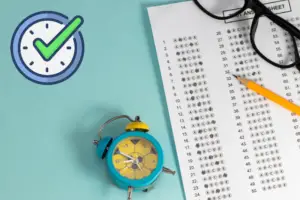This article contains all the successful tricks and tips for studying in 2023. This simply includes knowing the 8 Successful Tips for Studying in 2023.

In an era of technology, studying for a test, interview or promotion might be uneasy due to notifications from WhatsApp, Instagram or trending news from diverse social media platforms, football matches, music and latest Netflix series in town. These are the problems we face day in day out but you should know there is a price for success which can only be attained only by studying smart but what exactly does the study mean. To a student, it is more than reading a book or knowing a subject, for a furniture designer, it is more than the wood, to a musician, it is more than just singing.
Studying is the ability of one to set his mind or thoughts towards a subject in order to gain expertise through knowledge, this can be found in books, arts, science, or other areas. It is a mental work (i.e. the function of the brain to carry out thoughtful action through meditation, undivided attention).
3 classes of people who are involved in the study:
There are 3 classes of people who are involved in studying:
- Auditory people who study through audio, they are referred to as auditory class: they study by listening, they carry recording device to classes or where they learn ( which can be in a group discussion with teachers and colleagues, classes), they get their note on audio which they then play and listen to while studying Try reading your notes aloud and discussing them with other people. You might like to record key points and play them back.
- Visual People are people who study through their sight, a lot of students belong to this category. They get their written notes and sit down to study at their convenience, these people use colours, diagrams or capital letter to represent key points.
- Tactile/kinaesthetic people learn through study by doing. They belong to practical class of people who use role-playing or building models to get key points.
These people require the following tips of study in private or public areas, below are tips for Studying
1. Have a selected and secluded area and time of study:

The space for study must meet the standard you want, this standard could be equipped with music if you are one who enjoys listening to music as well as reading. The area boost and improve studying without distraction, this area could be your bedroom or a free space where you can carry out, everyone has their own perfect idea for studying, find your study area and time that works for you perfectly and consistently follow it through. Set up your study space in a quiet, comfortable, happy and inspired, then find your best time be it morning or night. We differ in our learning ability, most times people who read at night have a high time to meditate on it before dozing off thereby encouraging it to stick further, other people are the dawn of the day.
2. Make Studying Fun:
Instead of just reading, you can illustrate specific student with preferred option which might include images of cars, sweets that will soothe studying.
3. Read at regular intervals:
Studying at intervals beats cramming, thereby enhancing the memory from short to long term memory retention and quick reminder once exam starts knocking/revision need to be made, the intervals should be outlined from time to time an illustration include whatever you learnt that day at whatever educational institution should be examined before the day closes on bed, then revised 3 days later, 7 days, 21 days etc. Try to study with relevant materials
4. Time Planning and Management:

Time is a crucial factor which needs to be managed and plan wisely, you can do these by performing the following processes:
- Set reminder using alarms from alarm devices or phone or a reminder application to keep up with your scheduled study time, it keeps you consistent and on track. Set alarms to remind you about your study plans. A regular reminder keeps you honest and your plans on track.
- Use Sticky notes on your mobile phones, gadgets and on walls/doors: You’re your calendar and time to enable diligence in time management, you can opt to mark, stroke or asterisk days where a particular study will be directed on.
- Draft out a roaster or timetable in preparation for exam and proper time management.
- Make to-do lists: These breaks up all your task for each day, thereby your time study is further exemplified and outlined for management of time, you can carry out these tasks on your mobile phones and offline using sheets.
- Set time limits: you should be cautious with time management with time limits for each study, which could be 2 hours for a specified course and the next. These helps to keep you in check for another, examine your to-do list and give yourself a set time to spend on each task. If you don’t get something done in the set time, consider whether it’s the best use of your time to keep going with it, or to start working on something else.
5. Find out your preferred style of learning:
There are several style and techniques of studying: there is no direct rule to study, try each technique and give an account of each whatever scores high or makes you comfortable should be the one you should adopt. The techniques include
- Long time study with vigour and zero distractions.
- Studying a single subject over a long period, the highlight and rephrase a note which helps retention and memorization, this technique is referred to as massed practice [1]
- Review a topic at a time is a technique called blocked practice [2]
- Reading and rereading a text
- Highlighting or underlining important concepts in a text and then reviewing
- Reviewing notes
- Taking a pretest before studying According to research is said to improve studying and increase post-test results more than the same amount of time studying.
- Spaced practice is spreading out study sessions so as to give undivided focus on the subject within a short period on different days, these have been proved scientifically that it improves retention and recall more than massed practice. Cards are made to be used for spaced practice and self-quiz in 3 days’ time, questions answered with some difficulty are reviewed in 2 days while those answered incorrectly are reviewed almost immediately
- Self-quizzing: it is a form of active retrieval practice whereby students form questions for themselves so that they test what they have learnt so far, these questions are quiz or test carried after studying.
- Interleaving practise: it is a far effective method than the blocked practice, here the study entails you working on a set of problems similar and related but not of the same kind, these can be illustrated when the study covers a particular method to solve a question and while studying you discover another method which you implemented in solving that same question in the study.
- Paraphrase and reflecting: These include taking what do you are studying and linking it to real-life issues, common arithmetic problems can be linked with our day to day shopping.
5. Review and revise
At least once a week you should go back over the things you’ve studied in class. Thinking things over can help you to understand the concepts and help you remember when you need them the most.
- Quiz – Get a friend or family member to quiz you on key concepts. Offer to help your friends with their work too. Quizzes are great ways to get confident about what you know and find out what you still need to learn.
- Make your own study materials – Think up some practice exam questions or create your own flashcards to help you study. This way you learn it all twice: once when you make the study materials and once when you use them to revise.
6. Take Physical exercise and breaks in between while studying:
Studying all day weakens the body. So it’s important to take breaks while you’re studying, especially if you’re feeling tired or frustrated. Working too long on a task can actually decrease your performance.
When you take a break, make sure you get away from your desk or study space. A bit of physical – even just a walk around the block – can sometimes help you to look at a problem in a different way and could even help you to solve it.
7. Ask for help
If you’re stuck on something, or something just doesn’t seem to make sense? You can always ask for help. Talk to your teachers or lecturers about the things you don’t understand. Talk to your friends and fellow students too.
8. Be motivated:
Set a goal or milestone for studying, these will keep you motivated. When you’re studying and you see the goal (it will spur you up and motivate you to continue studying). Most times the goal could be high salary or a high paying course which you want to apply for, decorating your study area with inspirational quotes, famous people who you want to emulate are other ways of motivation
Conclusion
In conclusion, there is no direct rule to studying, you need to take critical examination on yourself and find out what works best for you. Studying is an act you discover within a period of time for the aim to pass a subject or gain adequate skill.
References
[1] Hopkins, R. F., Lyle, K. B., Hieb, J. L., & Ralston, P. A. S. (2016). Spaced retrieval practice increases college students’ short- and long-term retention of mathematics knowledge. Educational Psychology Review, 28(4), 853–873. https://doi.org/10.1007/s10648-015-9349-8
[2] (N.d.). Semanticscholar.org. https://pdfs.semanticscholar.org/34c7/071a274575710e818bcda436081c978a74bc.pdf







